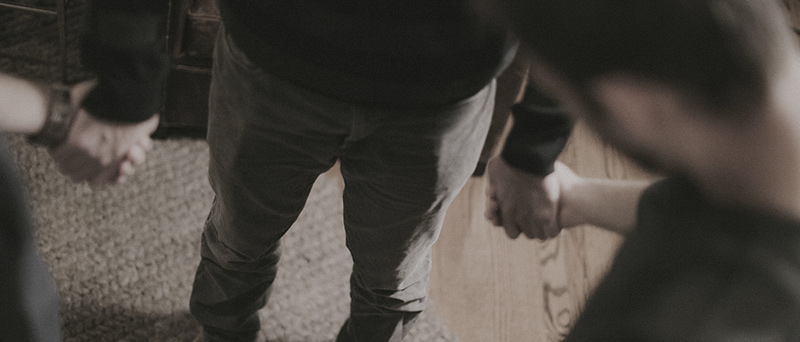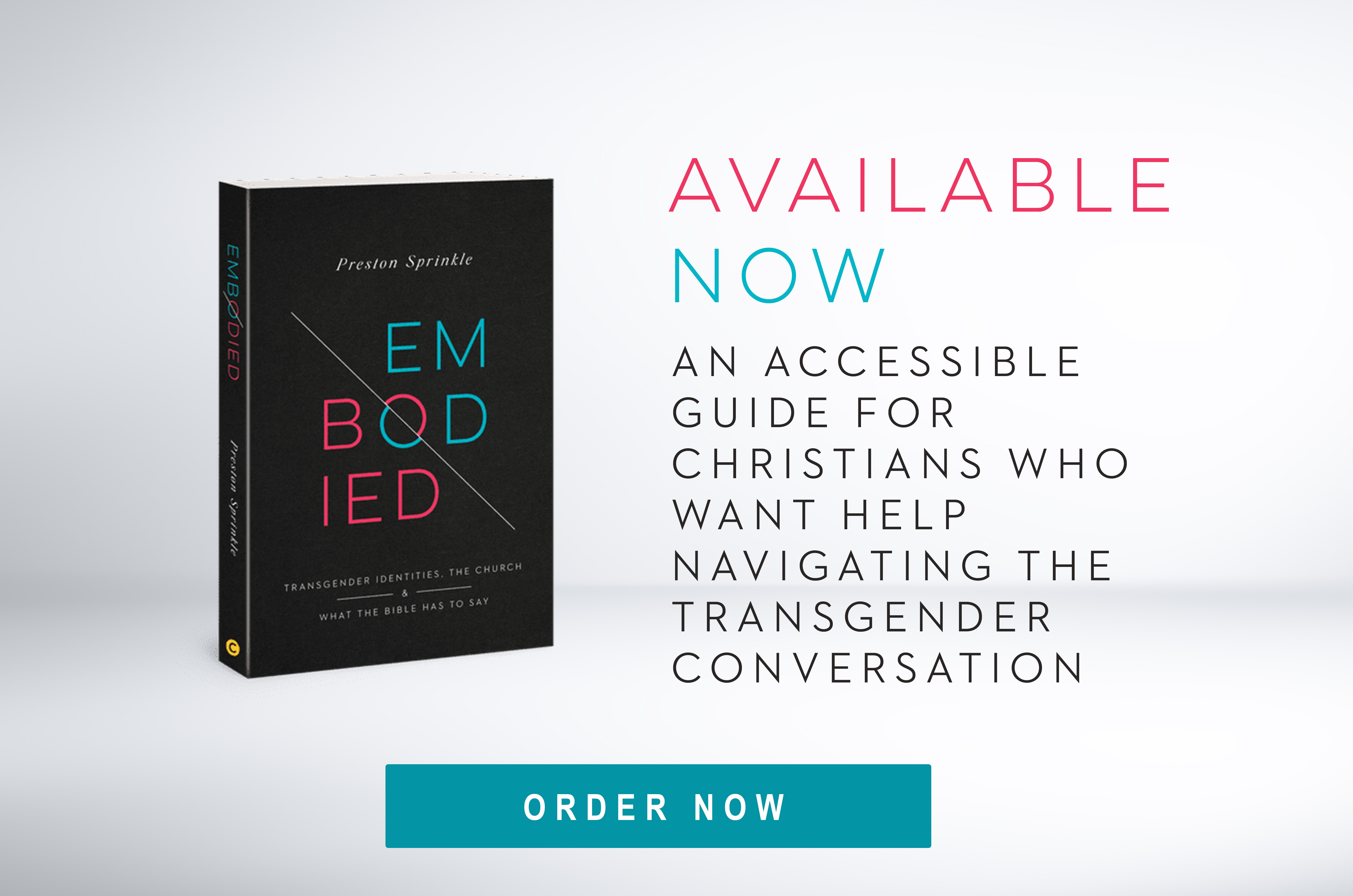
By Pieter Valk. Pieter Valk is a licensed professional counselor, the director of EQUIP, and cofounder of the Nashville Family of Brothers , an ecumenically Christian brotherhood for men called to vocational singleness. Follow Pieter @pieterlvalk on all platforms.
My pray-the-gay-away journey started at age 15. I came out to my parents, and a pastor referred us to an ex-gay therapist. We only met once. He taught me to block gay thoughts by imagining a Godzilla-sized STOP sign. When I got back in the car, my parents asked, "Is it… umm… fixed?"
"Yeah,” I answered. “Sure."
Destructive results of ex-gay practices
Netflix's recent documentary Pray Away focuses on former leaders of the ex-gay movement and the false hope for sexual orientation change that they preached to themselves and others. The documentary details how power and money encouraged leaders to ignore warning signs, leading thousands of gay Christians to lose their faith or life due to theologically and psychologically destructive ex-gay practices.
Buy Now!
Embodied: The Latest from Preston Sprinkle
Documentary scenes of these damaging methods reminded me of my decade of ex-gay experiences. From age 15 to 25 I met with three therapists who promised to increase my heterosexuality. I attended multiple psychotherapeutic ex-gay retreats, interned with a pray-the-gay-away ministry for 9 months, and prayed nightly for God to make me straight. Each week my therapist recorded my levels of opposite-sex attractions and same-sex attractions to graph my progress (and failure). I attended a psychotherapeutic weekend where leaders re-enacted my worst homophobic experiences "to bring healing." Weekend facilitators led us in supervised "golden father holding" sessions (complete with handouts of approved cuddling positions) and pressured me into letting older men hold me. An ex-gay pastor blamed my homosexuality on a lack of parental touch after being in a full-body cast for four months as a toddler. He instructed me to do infantile activities to repair my childhood wound, all while he watched. During a charismatic healing session, I was asked what the Holy Spirit was saying to me. When I shared honestly that I wasn't hearing anything, I was chastised in front of the entire group, "You must have some kind of unrepentant sin that’s blocking the Spirit. No doubt that’s keeping you from sexual wholeness."
The results? Like 96% of people who’ve participated in sexual orientation change efforts, I experienced no change in my sexual orientation. And like most ex-gay survivors, my anxiety and depression deepened, and greater dependence on unhealthy coping mechanisms landed me in sex addiction recovery. Meanwhile, many of the therapists, mentors, and older peers in those spaces eventually abandoned a traditional sexual ethic or Christianity altogether.
While Exodus International, the largest ex-gay organization, closed in 2013, modern manifestations of ex-gay theology (often referred to as "Side X") persist in churches today. I've spoken elsewhere about small but disruptive neo-Calvinist elements in the PCA, ACNA, and SBC which continue to offer false hope for change, police sexual identity language as a sign of true repentance, bar gay celibate Christians from ministry, pass off gay Christians to therapists and parachurch ministries, and teach that merely experiencing same-sex attractions is a sin.
The false dichotomy between ex-gay theology and progressive sexual ethics
In contrast to these destructive practices, the Netflix documentary shows former leaders associated with Exodus recanting their ex-gay past and attending churches that teach a progressive sexual ethic (i.e., the belief that the Bible condones same-sex sexual activity—often referred to as "Side A"). The documentary encourages the audience to cheer for former Side X leaders who continue to cultivate public influence—now that they're on the right side of history: Side A. This false dichotomy between Side X and Side A hides the detrimental outcomes of a progressive sexual ethic and withholds visibility for gay Christians stewarding their sexualities according to a middle way (often referred to as "Side B") that holds fast to Biblical wisdom while recognizing that sexual orientation rarely changes.
I've detailed elsewhere why Side A contradicts the wisdom of the Scriptures and the Church, and I've responded to the most convincing arguments for a progressive sexual ethic. Not only are both Side X and Side A false, but they have both led to great loss of faith. Most of my gay Christian friends who adopted a progressive sexual ethic eventually stopped believing in God. Many of them follow a sad, but logical trajectory: At first, they perform theological acrobatics to read the Bible in support of same-sex marriages. Then after a while, they reluctantly agree with a majority of queer theologians who say that the Bible probably says what Christians have understood it to say for 2000 years: the God of the Bible condemns gay sex and gay marriage. Yet these gay Christians continue to believe that the *real* God supports gay marriage. The Bible is just outdated and lacks authority or relevance for modern people. But once they decided that the Bible and the Church couldn’t tell them who God is, they realized they were just worshipping a God they came up with in their own minds. They wondered, "What’s the likelihood that the God of my imagination is real?" Eventually they stopped believing in God all together.
Today, very few of the gay Christians I know who have been Side A for at least five years can make an unqualified confession of an historical understanding of the Nicene Creed and denounce mutually exclusive claims. Perhaps this trend is an anomaly among the gay people I know, but when I share this observation publicly, gay and straight people consistently private-message me, “Wow, I thought this was only happening to *my* friends. I’ve been afraid to speak up.” Scientific data seem to confirm the destructive consequences of Side X and Side A: the largest survey of faith and sexuality found that during recent decades when ex-gay theology and a progressive sexual ethic dominated, 54% of gay Christians have left the faith.
Both ex-gay theology and a progressive sexual ethic share another important feature. Pray Away ends with a celebration of a former ex-gay leader’s recent same-sex wedding. The pastor officiating the wedding blesses the couple, "God created you for communion with one another, and the highest expression of this communion will be your marriage." The documentary ends with a celebration of the idolatry of romance—with a claim that Christians who follow the kingdom singleness of Jesus and Paul image the Trinity in lesser ways. Interestingly, both Side A and Side X idolize romance. Both have given in to the lie that we need marriage and sex to be whole Christians. A progressive sexual ethic demands that gay Christians make love to those they're most drawn to, or be accused of self-hate. Ex-gay theology demands that gay Christians make love to people of the opposite sex, or be accused of lukewarm sanctification. Both worship the idol of romance.
Beware of the false dichotomy of Pray Away: that the only alternative to harmful ex-gay theology is to abandon what a vast majority of Christians, churches, and theologians have understood the Bible to teach about God's wisdom for sexual stewardship. Thankfully, there's a third option. There's a middle way that rejects the idol of romance and that holds fast to how the universal Church has consistently read the Bible—all while understanding that people don't choose to be gay, that there's no formula for changing sexual orienation, and that experiencing same-sex attraction isn't a sin.
A middle way of compassion and conviction
This compassionate, traditional sexual ethic teaches that God's best for Christians is either a lifetime vocation of abstinent singleness to do kingdom work with undivided attention or a lifetime vocation of marriage between one woman and one man with an openness to raising children for the kingdom. This perspective understands that some people are gay, that sexual orientation change efforts are dangerously ineffective, and that our churches need to become places where gay Christians can thrive with reasonable effort according to a traditional sexual ethic. Admittedly, some churches teach this wisdom while gay Christians in their congregation continue to struggle to flourish because these churches have failed to truly embody a traditional sexual ethic.
Few churches share God's love and wisdom for gay people with every person before puberty to prevent the wounds of the closet. Few churches invite straight Christians to consider the lifetime singleness of Jesus and Paul, encourage marriages to be open to the kingdom work of raising children, or take seriously what the Bible has to say about unbiblical divorce and remarriage (protecting gay Christians from experiencing the indignity of discrimination, which can result in an unhealthy victim mentality). Few churches are places where kingdom singles can find permanent lived-in family in the body of Christ, regardless of sexual orientation. If churches claim that a traditional sexual ethic is both true and good for gay Christians, they must take the steps necessary to become places where gay people bear good and beautiful fruit with reasonable effort.
Thankfully, there are books, conferences, and ministries offering expertise along this middle way. Don’t fall for the false dichotomy of ex-gay theology or a progressive sexual ethic in Netflix’s Pray Away. Instead, read Preston Sprinkle’s People to Be Loved, worship and learn with others at Revoice Conference 2021, and contact EQUIP (the ministry I lead) about becoming a church where gay people thrive according to a traditional sexual ethic. Ready to take practical steps at your church with compassion and conviction? Check out EQUIP’s free guide to five strategies for your church!

